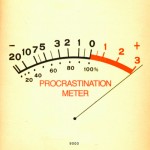Former lawyer turned coach, Paula Davis-Laack gives readers her best pointers for how to prevent burnout. Read the Blog
7 Strategies to Prevent Burnout
Helpful Repetitive Thinking in Depression
In a previous blog, I noted that rumination – repeated dwelling on feelings, problems, and difficulties – is an important process maintaining depression. I also discussed the finding that repetitive thinking about upsetting events and unresolved problems is a normal and natural response – and that sometimes it can be helpful. For example, focusing on our difficulties can help us to come to terms with them and to solve problems. These contrasting effects of repetitive thinking led to the key questions of what factors determine whether repetitive thinking is helpful or unhelpful, and how does such thinking go wrong in depression?
These questions have been the primary focus of my research over the last 15 years and we are beginning to get some preliminary answers. This research is summarized in a research paper I published in Psychological Bulletin (2008).
First, it appears that the content and focus of the repetitive thinking is important. If you keep thinking about something positive, it is likely to make you feel better, whereas if you keep dwelling on something negative it will make you feel worse. In a nice meta-analysis of the field, Mor and Winquist (2002) found that attention to negative aspects of the self was strongly related to increased levels of negative mood, whereas attention to positive aspects of the self was related to lower levels of negative mood. The act of repetitively thinking about anything acts as a form of mental rehearsal for the content of inner speech, strengthening and elaborating the mental representations, making them easier to come to mind in future. It also tends to polarize and exaggerate thinking, making it more extreme. So, repetitive focus tends to exacerbate the current state and mood – if you are in a sad mood with negative thoughts, and you dwell on them, the mood will get worse, and the thinking will get more negative. Thus, repetitive thought acts as an amplifier of thoughts and feelings.
Second, the style of the repetitive thinking is equally important. It is possible to focus on negative information in helpful or unhelpful ways.
Imagine that you are faced with an upsetting and saddening event such as the unwanted end of an intimate relationship. The break-down of a relationship will be experienced as negative by nearly everyone and will likely lead one to dwell on its demise. However, there are quite distinct ways of dwelling on it.
One understandable way to dwell on this split is to think about why it happened, what it means, what caused it, and its implications for the future. In this style of processing the break-up, you would be focused on the causes, meanings, and implications of what happened. This way of thinking tends to move away from the specific details and contexts of what happened and to more general abstractions, which capture the key gist of the event and what this event might share with past events and with other situations in the future. Hence, this style of thinking is called abstract processing. Typical questions might include “Why did this happen? What does it mean about me? What does it mean about the future?” An extensive social psychology literature indicates that such “why?” questions tend to make thinking more abstract and to distance individuals from the specifics of situations.
This abstract style of processing negative events is typical of depressive rumination and anxious worry. You can see how if you are feeling down and have low self-esteem, focusing on yourself and thinking about a break-up in this abstract way could be unhelpful, because asking these questions about causes, meanings, and implications is likely to lead to negative self-blaming conclusions, e.g., “It is my fault”. Moreover, because abstract processing tends to broaden out across situations, such thinking will pull in past memories of rejection and loss (e.g., “This keeps happening to me”), and may lead to general conclusions about the future, such as “I will never have a lasting relationship”, all of which worsen mood and exacerbate depression.
In contrast, you could repetitively reflect on the break-up by focusing on exactly how it happened, replaying in detail the events that led up to the split and the final few meetings and conversations with your ex, noting in detail what happened. In this style of processing the break-up, you would be focused on the specific details, the sequence and the circumstance of how the relationship came to an end. This way of thinking focuses on the context (when, where, how, what, who) of what happened and how it happened and stays close to your actual concrete experience of the end of the relationship, rather than thinking about its meaning. Hence, this style of thinking is called concrete processing. Typical questions might include “How did this happen? What did I do? What did my ex do? How did I feel? How did this unfold over time?”
A series of experiments in my lab, replicated in other labs, have found that, when faced with problems or upsetting events, adopting a concrete style of processing is more helpful than an abstract style of processing. For example, when asked to generate solutions to interpersonal difficulties such as an argument with a partner or a disagreement with your boss, we found that prompting currently depressed patients, formerly depressed patients and never depressed controls with either no questions, abstract “Why?” questions, or concrete “How?” questions, influenced the quality of solutions generated. Replicating other findings, patients with depression were worse at solving social problems than recovered depressed patients and non-depressed individuals when left to their own devices. However, when prompted to ask concrete questions, patients with depression were as good at solving problems as the other two groups, suggesting that these “How?” questions ameliorated this difficulty. Further, asking abstract “Why?” questions worsened problem-solving in people who were formerly depressed, suggesting that these questions activated their previous difficulties. We believe that concrete processing is more helpful for problem-solving because it makes an individual aware of the specific circumstances and behaviors that occurred in a situation, suggesting possible alternatives to resolve the situation.
In another study, we found that training students to think about the meanings and implications of emotional events for 30 minutes caused them to feel worse to a subsequent stressful anagram task than students who practiced thinking about the concrete details of emotional events. Thus, relative to concrete processing abstract processing increases the negative emotional response to difficulties. Similar effects have been found when studying how quickly people recover from previous upsetting events, with a concrete style of thinking about past sad or traumatic events proving to be more helpful.
Taken together, this research suggests that repetitive thinking about the self, negative feelings and problems in an abstract style will be particularly problematic, driving depression and anxiety. Further, it suggests that shifting to a more concrete way of thinking about difficulties could be helpful for people with depression. Building on this hypothesis, we have investigated whether training people with depression to become more concrete and specific can itself help to reduce depression. This will be the subject of another blog.
Ed Watkins, Ph.D. is a clinical psychologist.
Depression & Procrastination
Most people who are depressed have a hard time being productive. Work—and here I mean everything from paid employment to child-rearing and housekeeping to the kinds of “work” we assign ourselves, like reading a good book or planting a garden—is a chore to the depressed. It drains us, leaves us feeling as bad as before, physically worn out and emotionally depleted, instead of proud of ourselves and invigorated. Other people with depression seem to work very hard all the time, but there is little payoff for their efforts. As with so much of depression, there is a real chicken-or-egg question—is work so difficult because we’re depressed, or are we depressed in part because we can’t accomplish anything? And as with so many chicken-or-egg situations, we face a false dichotomy: the truth is, poor work habits and depression reinforce each other.
Depressed people tend to be great procrastinators. Procrastination means putting off for a later time what “should” be done now. The “should” may come from without, as with the teenager who dawdles over homework, or from within, as with me planting my garden. When it comes from without, it’s easy to see the rebelliousness that procrastination expresses. When it comes from within, it’s hard to see immediately what purpose procrastination serves—but it may serve many.
 Procrastinators have some big false assumptions about how work works. They assume that really productive people are always in a positive, energetic frame of mind that lets them jump right into piles of paper and quickly do what needs to be done, only emerging when the task is accomplished. On the contrary, motivation follows action instead of the other way around. When we make ourselves face the task ahead of us, it usually isn’t as bad as we think, and we begin to feel good about the progress we start making. Work comes first, and then comes the positive frame of mind. Closely allied to this misunderstanding about motivation is the idea that things should be easy. Depressed people assume that people who are good at work skills always feel confident and easily attain their goals; because they themselves don’t feel this way, they assume that they will never be successful. But again, most people who are really successful assume that there are going to be hard times, frustrations, and setbacks along the way. Knowing this in advance, they don’t get thrown for a loop and descend into self-blame whenever there’s a problem. If we wait until we feel completely prepared and feeling really motivated, we’ll spend a lot of our lives waiting. See my page on developing greater will power.
Procrastinators have some big false assumptions about how work works. They assume that really productive people are always in a positive, energetic frame of mind that lets them jump right into piles of paper and quickly do what needs to be done, only emerging when the task is accomplished. On the contrary, motivation follows action instead of the other way around. When we make ourselves face the task ahead of us, it usually isn’t as bad as we think, and we begin to feel good about the progress we start making. Work comes first, and then comes the positive frame of mind. Closely allied to this misunderstanding about motivation is the idea that things should be easy. Depressed people assume that people who are good at work skills always feel confident and easily attain their goals; because they themselves don’t feel this way, they assume that they will never be successful. But again, most people who are really successful assume that there are going to be hard times, frustrations, and setbacks along the way. Knowing this in advance, they don’t get thrown for a loop and descend into self-blame whenever there’s a problem. If we wait until we feel completely prepared and feeling really motivated, we’ll spend a lot of our lives waiting. See my page on developing greater will power.
Procrastination can also help protect the depressed person’s precarious self-esteem. We can always tell ourselves we would have done it better if. . . . The paradigm is the college term paper rushed together in a furious all-nighter. The student protects himself from the risk of exposing his best work by never having the time to do it right. This allows him to protect his fantasied sense of himself as special and uniquely gifted. Procrastination is also a result of the depressed person’s tendency toward perfectionism, a crippling problem. Research has shown that the more perfectionistic a depressed person is, the worse his chances of recovery. Trying so hard to make every single little piece of a project perfect, we doom ourselves to disappointment and frustration.
 There is a simple, useful process psychologists call chaining, or making one event depend on another event’s being accomplished first. You can make chains that help you get a lot of work done. I want to go play Tomb Raider on my computer, but I’m going to let that be my reward for first going through the outdated magazines. As I go through the pile, I find there’s one I really must renew my subscription to. Now I have to do that as well before I play Tomb Raider. Renewing that subscription reminds me that I have a stack of unpaid bills nagging at me. Maybe I can’t get the bills all paid, but I can take twenty minutes to get them organized and make a commitment to myself to pay them tomorrow. Now I can go play my computer game feeling a little less overwhelmed by events and a little more deserving of some time to goof off. As you get used to this practice, your chains can get longer and longer without getting burdensome.
There is a simple, useful process psychologists call chaining, or making one event depend on another event’s being accomplished first. You can make chains that help you get a lot of work done. I want to go play Tomb Raider on my computer, but I’m going to let that be my reward for first going through the outdated magazines. As I go through the pile, I find there’s one I really must renew my subscription to. Now I have to do that as well before I play Tomb Raider. Renewing that subscription reminds me that I have a stack of unpaid bills nagging at me. Maybe I can’t get the bills all paid, but I can take twenty minutes to get them organized and make a commitment to myself to pay them tomorrow. Now I can go play my computer game feeling a little less overwhelmed by events and a little more deserving of some time to goof off. As you get used to this practice, your chains can get longer and longer without getting burdensome.
Finally, there’s also the Irish way of overcoming procrastination. Confronted with a wall too high to climb, the Irishman throws his hat over it. Now he must find a way over the wall. If I have to paint a room, I’ll likely get the paint and start the first coat as soon as I can, disrupting the whole household in the process. That way I’m fully committed, and have to finish quickly.
Controlling procrastination is more like controlling eating or exercise than smoking or drinking; it’s impossible to never procrastinate. For one thing, often it’s not clear which of two is the most important activity. Study for the exam right now, or eat dinner and then study? Or eat dinner, take out the garbage, walk the dog, call a friend, check Facebook, and then study? But procrastination is a habit that can gradually be replaced by the habit of not putting things off.
Rita Emmett, in The Procrastinator’s Handbook, gives us Emmett’s Law: “The dread of doing a task uses up more time and energy than doing the task itself.” Here’s O’Connor’s corollary: “It’s amazing what you can accomplish when you finally get down to work.” So my first advice for overcoming procrastination is to glue your seat to the chair, ignore distractions, and work for five minutes. Then you can take a short break if you feel it’s necessary, but put in another five minutes after your break. The procrastinating impulse in your mindless self won’t respond to logical argument, but it may respond to a narrowing of focus. You’ll get in a groove, start feeling productive, and the impulse to procrastinate further will dwindle. If it doesn’t work today, try again tomorrow.
A second piece of advice: while you’re sitting glued to your chair, you’re not allowed to do anything other than the task you’re there for, no matter what attractive distraction might come to mind. You don’t have to work on your primary task, but you can’t do anything else. This can be torture, but it’s great mental discipline. You’ll quickly see how easily distracted you are, but you’re forced to develop the will power to withstand temptation. Eventually, you’ll get something constructive done.
Hold yourself to precommitments. No television (Internet, email) until I’ve worked for a half hour. If I get X done, I’ll reward myself with pizza tonight; otherwise it’s peanut butter. Be sure to keep these commitments reasonable and don’t set yourself up to fail. If you practice and get consistent at this, you can start to up the ante.
 Procrastinators don’t reward themselves for finishing. A drink with friends, a special dessert—things that normal people might do to celebrate an accomplishment—these things don’t occur to procrastinators (partly because they’re never satisfied with their results). But it’s important to practice these rituals because, in our minds, the pleasure that comes with the reward comes to be associated with doing a job well. In this way, work itself becomes more satisfying.
Procrastinators don’t reward themselves for finishing. A drink with friends, a special dessert—things that normal people might do to celebrate an accomplishment—these things don’t occur to procrastinators (partly because they’re never satisfied with their results). But it’s important to practice these rituals because, in our minds, the pleasure that comes with the reward comes to be associated with doing a job well. In this way, work itself becomes more satisfying.
Clutter is highly associated with procrastination. Each of those extraneous items on your desk, workspace, or computer desktop is a distraction, a reminder of something else to do. Mental clutter works the same way; if you have a set of nagging chores, just making a list will help you focus on the present. The list will contain the nagging. Every time we are distracted, we lose efficiency. You can reduce your procrastination greatly by eliminating distracting cues.
Of course, personal computers and wireless communication have created many more temptations to procrastinate—games, Facebook updates, checking on the news. Tweets, cell phone calls, and instant messages constantly break our concentration. If we really want to focus on something, we have to remove temptation and prevent interruptions. If you work on your computer, turn off your Internet browser and make it difficult to get back on. Put the phone on silent. Multitasking is a myth.
By Richard O’Connor, Ph.D.
Dr. O’Connor is a therapist and best-selling author of the book Undoing Depression: What Therapy Can’t Teach You and Medication Can’t Give You.
Do Antidepressants Impair the Ability to Extinguish Fear?
A new study concludes that SSRIs, a class of antidepressants widely taken for depression and anxiety, affect how the brain processes fear. Read the Story
Top 4 Resources for Managing Depression
When depression has us down, we need reliable resources to cope. Read the Blog
Caffiene
Great piece by one blogging lawyer about stress, coffee and life in the legal biz. Read the Blog
Singin’ the Blues
Depression isn’t about feeling sad and blues music isn’t about depression. A great piece by lawyer turned therapist Will Meyerhofer. Read the Blog
Top Relapse Triggers for Depression & How to Prevent Them
A big risk for anyone who has suffered from depression is the real risk that it can reoccur. Read the News
How Meditation Can Change the Brain
From The New York Times, how meditating fundamentally changes the chemistry in our heads. Read the News
The Fourth Step in Leaving Behind the Law – Facing Your Fears
Decided you’d like to leave the law, but not sure where to start? Read the Blog
Built by Staple Creative









